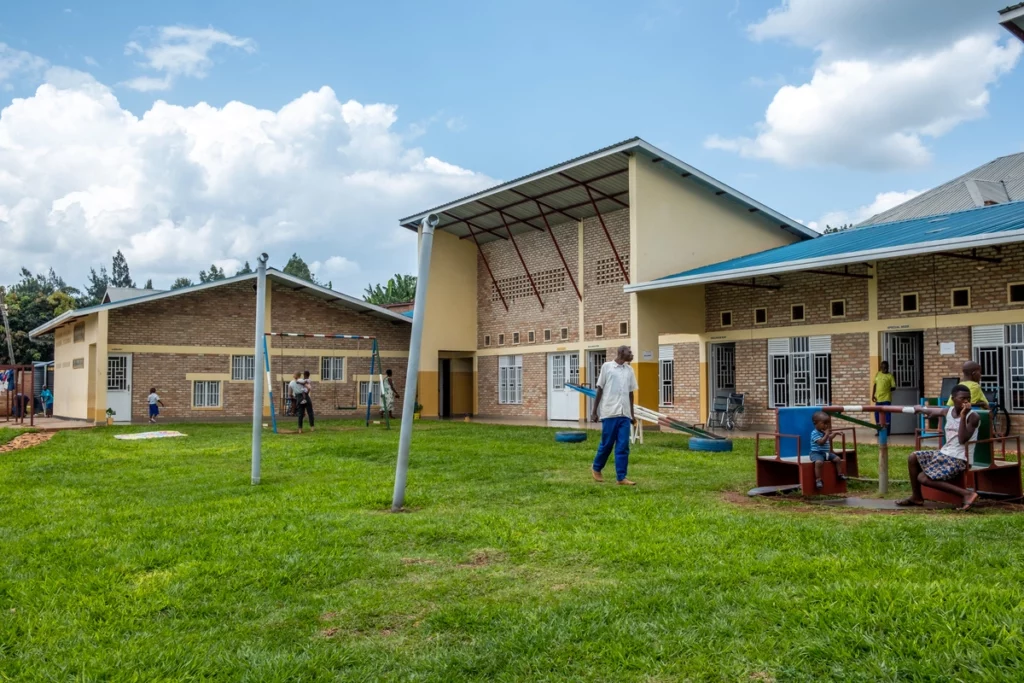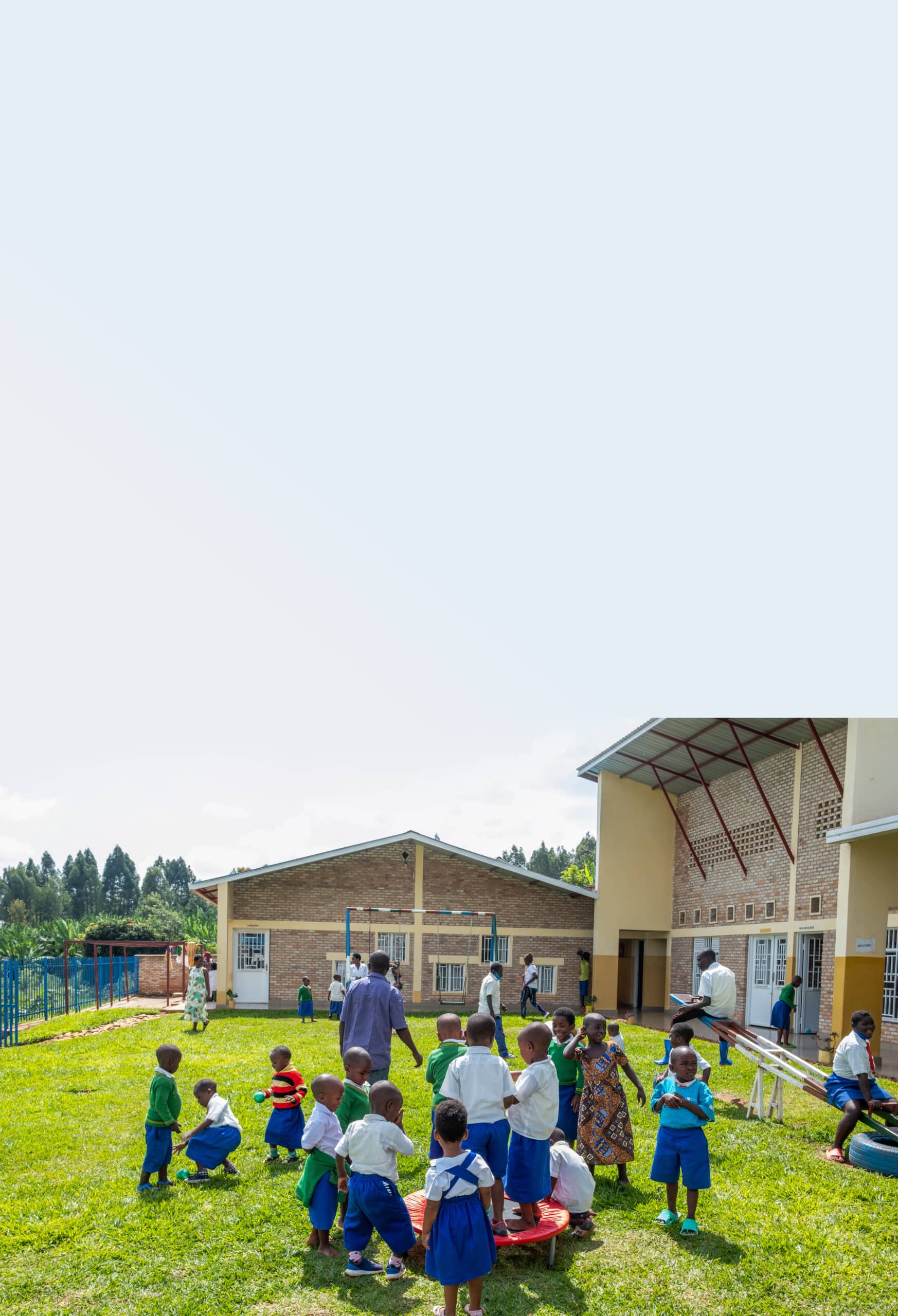
Richard Munyaneza, Advocacy, Communication and Safeguarding Coordinator at Hope and Homes for Children Rwanda explains how a community hub is helping children with disabilities to thrive
This vibrant community hub (pictured above), run by the inspirational Médiatrice Mukasharangabo and her daughter, Clementine, used to be an orphanage for children with disabilities.
But in 2018, our team began working with our local authority partners to close the orphanage and reunite the children with their parents or other close relatives by making sure that they have the training and support to care for their children at home.
Together with local government, the National Council for Persons with Disabilities (NCPD) and the National Child Development Agency (NCDA), we found all 26 children loving families and closed the orphanage.
Out of the 26 children and young adults with mental and physical disabilities in the institution, we successfully reunited 19 with their biological families; placed two with their extended family; and for the five children and young adults where this wasn’t possible, we found them loving foster families, like Ndoli*, whose story you can read overleaf.
Most of the old orphanage buildings were knocked down, and in their place, we built a vibrant new community hub. Médiatrice and her daughter now happily run the new centre, which offers an inclusive Early Childhood Development (ECD) for children aged 3-6 years and children with disabilities, as well as vital support services for children with disabilities, including occupational therapy, physiotherapy and additional needs education.
It is so wonderful to see so many children now thriving thanks to these services. For example, with the help of physiotherapy, four-year-old Kenis*, who has cerebral palsy, has learned to sit up for the first time.
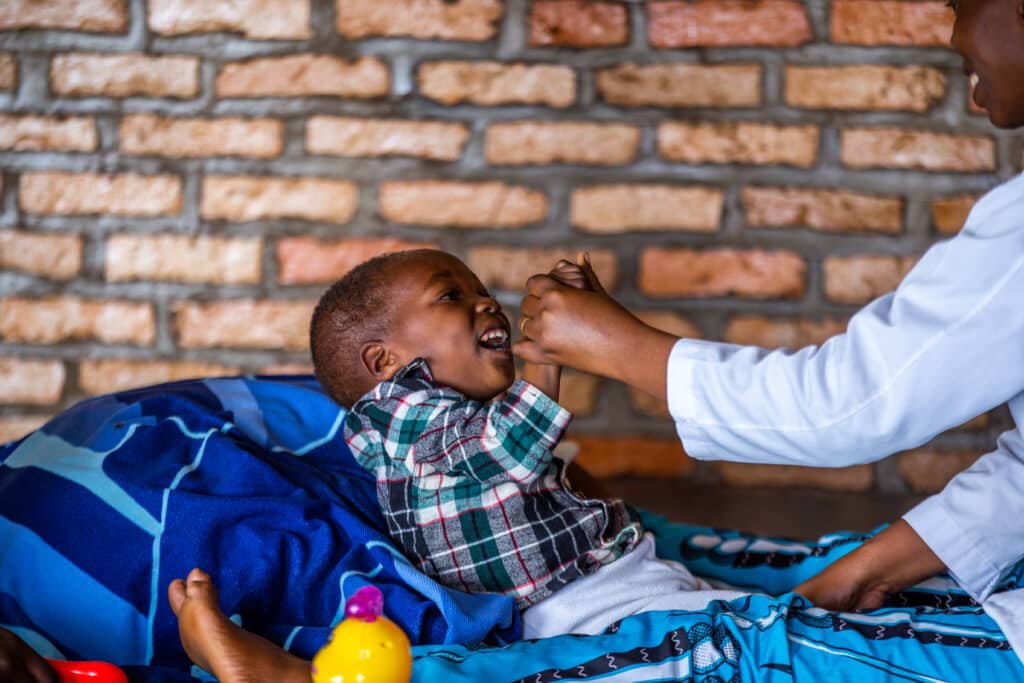
Occupational therapy classes have helped 10-year-old Singiza*, who has epilepsy and learning difficulties, learn to make things using beads.
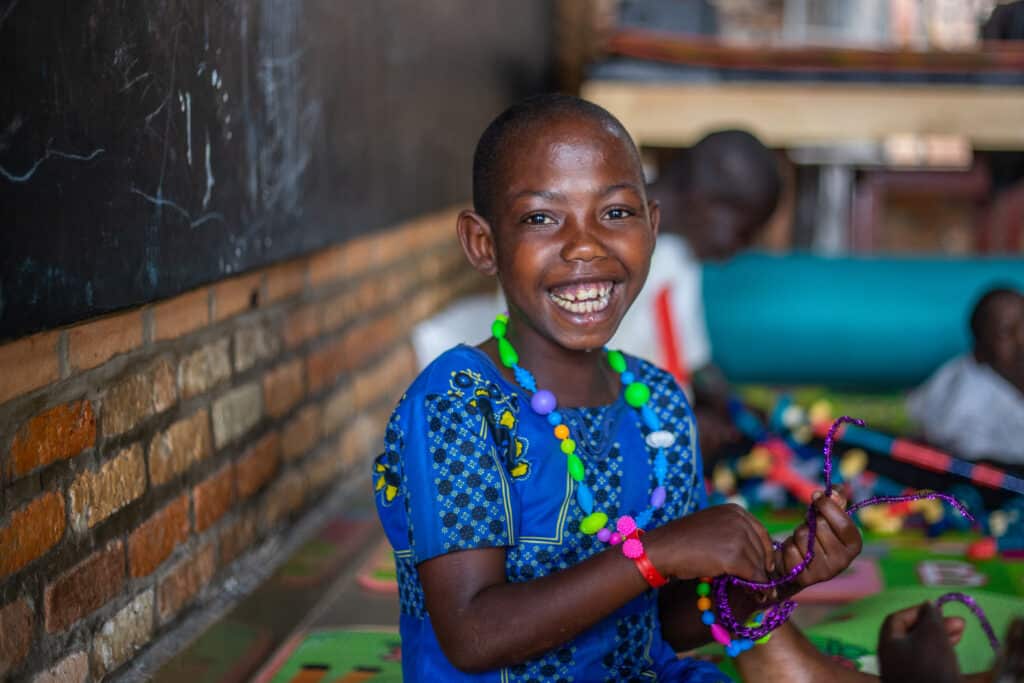
And six-year-old Juju*, who has paraplegia, has learned to write. All vital milestones in their development which they might not have reached otherwise.
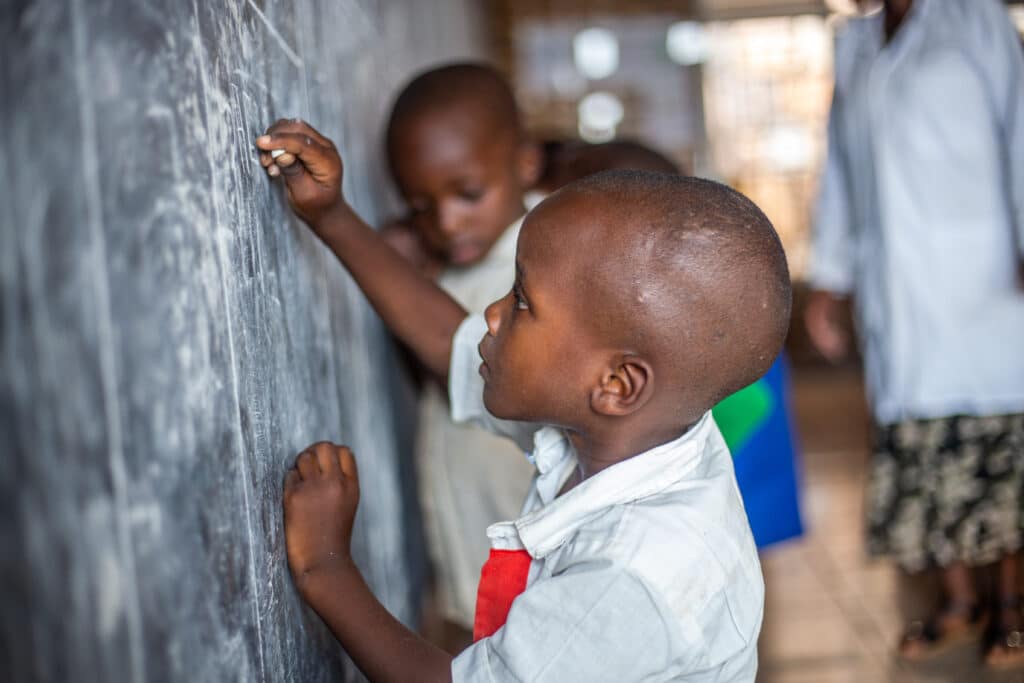
And children without disabilities are also benefitting greatly from their classes and nutritious meals, like three‑year-old Mahoro*, who always has a smile and loves to play and dance with the other kids.
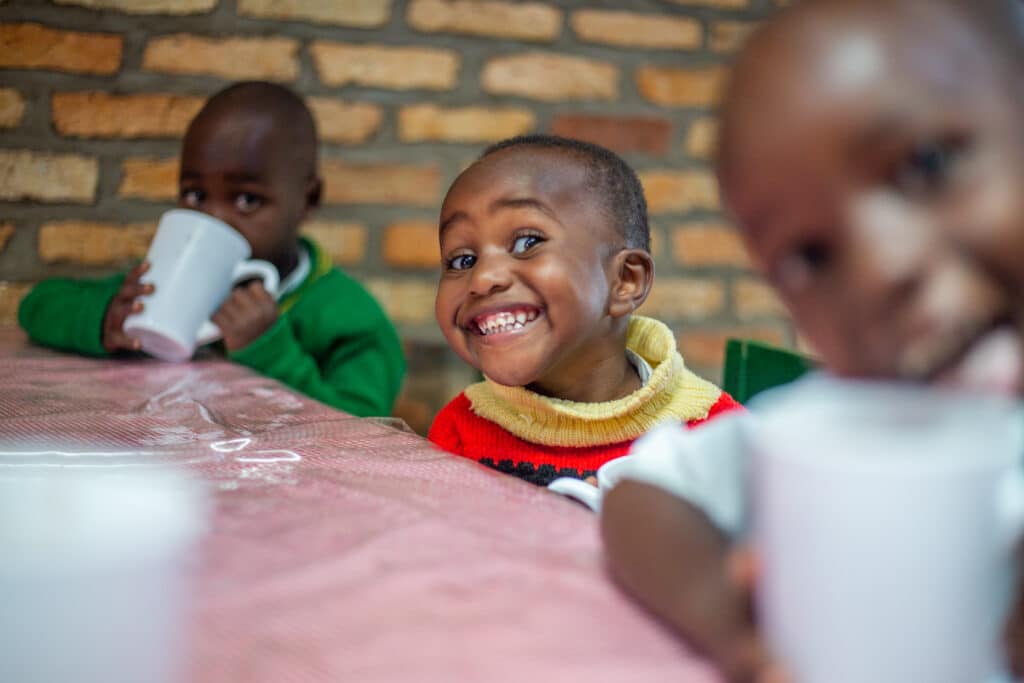
You can read part two of Richard’s blog, which introduces Rugwiro, the foster father going above and beyond to protect children here.
